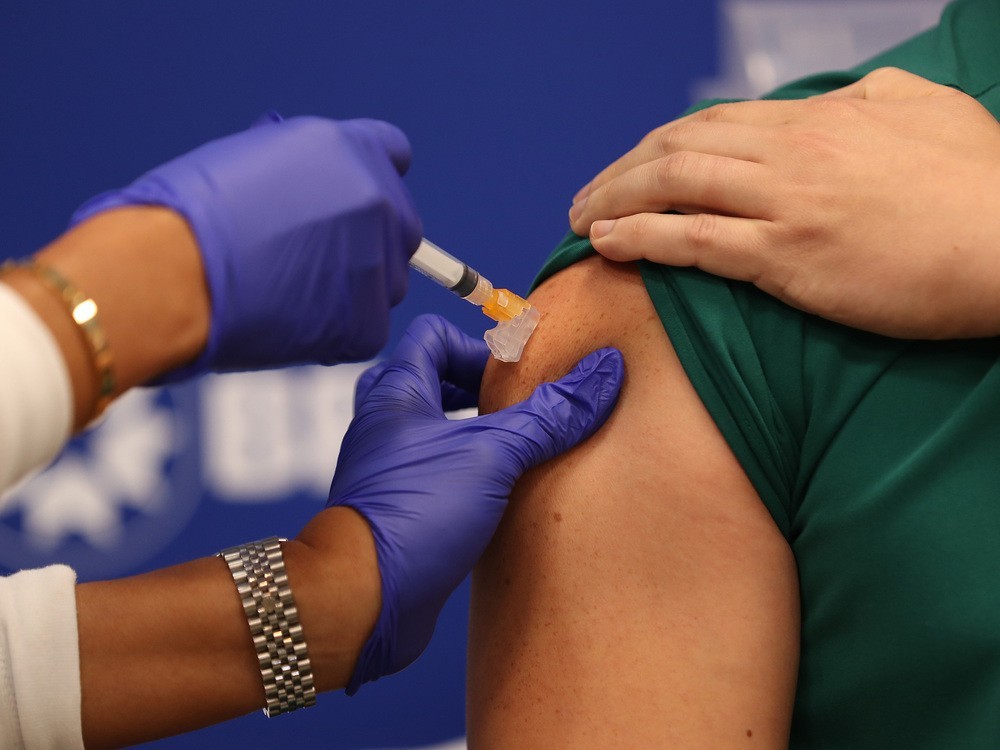Peter McKnight: A new ‘study’ gives yet more oxygen to the anti-vax movement – Vancouver Sun
Opinion: Florida’s surgeon general avoided proper scientific scrutiny and peer review by publishing the study on the internet — this amounts to science by tweet

Article content
You know you’re in for some fun when Florida Surgeon-General Joseph Ladapo tells you, in a tweet ostensibly about public health, that he “will not be silent on the truth.”
Advertisement 2
Story continues below
Article content
If that sounds more like a political broadside than a statement about medicine, that’s because it is. In fact, Ladapo’s tweet is a political salvo, disguised as public health information, about a purported scientific study.
Article content
The “study,” which was published on the Internet, has provided yet more oxygen to the anti-vax movement around the world. But it provides us with an opportunity to examine how something that looks like science and sounds like science might, nonetheless, not be science — or at least not good science.
The study’s conclusions are dramatic, of course. In a news release, Ladapo summarized the study findings thusly: “This analysis found that there is an 84-per-cent increase in the relative incidence of cardiac-related death among males 18-39 years old within 28 days following mRNA vaccination.”
Advertisement 3
Story continues below
Article content
Now if you want to ask the study authors about that scary finding, you’re out of luck, since there aren’t any authors. At least none who would sign their names to it.
Alternatively, you could see what experts think of the study by, for example, seeing if peer reviewers recommended it for publication in a scientific journal. But there aren’t any peer reviewers either, since it hasn’t been submitted to a journal and there’s no evidence it ever will be.
Instead, like much of the anti-vax movement, this amounts to science by tweet. Fortunately, two are now playing that game, as experts have tweeted their own analyses of the “analysis.” And the verdict is scathing.
The study employed a “self-controlled case series,” methodology, which is a fancy way of saying it compared subjects to themselves at two different time periods. The mysterious authors looked at the death rate among men during the first 28 days after receiving a vaccination (Period 1), and the ensuing five months (Period 2).
Advertisement 4
Story continues below
Article content
Since adverse effects are likely to manifest within the first few weeks of getting vaccinated, a higher death rate in Period 1 would suggest, but not prove, that the vaccine was responsible. And lo and behold, that’s exactly what they found.
But not so fast. Yale emergency physician Kristen Panthagani notes that the nameless authors considered some cardiac-related causes of death — including some that are highly unlikely to result from vaccination — and excluded others. Why this selective approach? That remains unknown, since the unknown authors don’t tell us.
Panthagani also explains that the incognito authors didn’t consider the possibility that COVID itself was responsible for some of the excess deaths in Period 1. Since the benefits of the vaccines aren’t fully realized until a couple of weeks after vaccination, the study subjects might have been infected and died of COVID.
Advertisement 5
Story continues below
Article content
Epidemiologist Deepti Gurdasani adds to this analysis by noting that, when calculating the death rate for Period 2, the unnamed authors failed to remove from the analysis the people who had died in Period 1. And this would result in an artificially low death rate for Period 2 since, unlike cats, people can’t die twice.
Undeterred by such methodological shortcomings, Ladapo pressed on in his news release, suggesting, “With a high level of global immunity to COVID-19, the benefit of vaccination is likely outweighed by this abnormally high risk of cardiac-related death among men in this age group.”
Interestingly, the phantom authors could have tested that hypothesis by comparing the relative risks of receiving and not receiving the vaccine. But wouldn’t you know it, they didn’t do so.
Advertisement 6
Story continues below
Article content
Fortunately, physician-researcher Kyle Sheldrick did do so. Based on the study’s results, Sheldrick concludes that vaccines caused about nine cardiac deaths over the 28-day period.
In the same period, epidemiological evidence suggests about 315 young men would have died of COVID, which means the vaccine caused nine deaths while preventing more than 300. A pretty good bargain, if you ask me.
Not if you ask Ladapo, though, who unapologetically tweeted, “I love the discussion we’ve stimulated. Isn’t it great when we discuss science transparently instead of trying to cancel one another?”
This tweet is, of course, another political broadside, one that appeals to “cancel culture” hysteria rather than embracing any standard of scientific rigour.
Advertisement 7
Story continues below
Article content
The fact is, science — real science — is discussed transparently all the time, most notably when studies are presented at conferences and published in scientific journals. But the unidentified authors don’t seem inclined to do either of those things with their cargo cult science.
Instead, Ladapo effectively avoided proper scientific scrutiny by publishing the study on the Internet. And in so doing, he risked adding to the mountain of misinformation about COVID vaccines. Which is exactly what happened, as it’s now being trumpeted here, there and everywhere by the anti-vax movement.
Ladapo and his kindred spirits might therefore not be silent on the truth, but they certainly seem intent on drowning it out with as much noise as possible.
This article has been archived for your research. Find the original article here.



